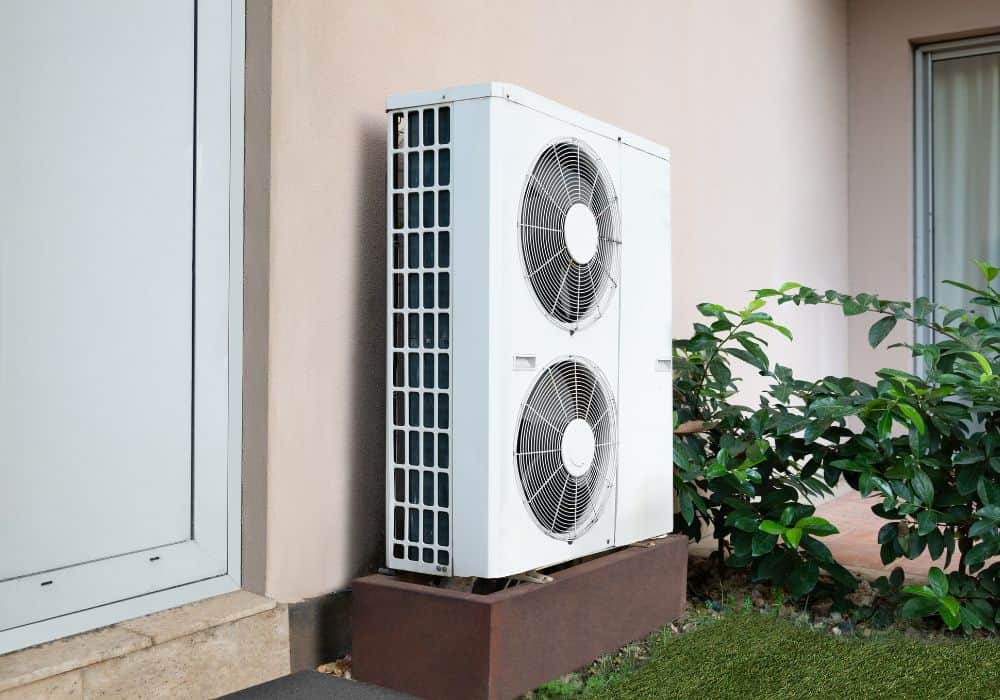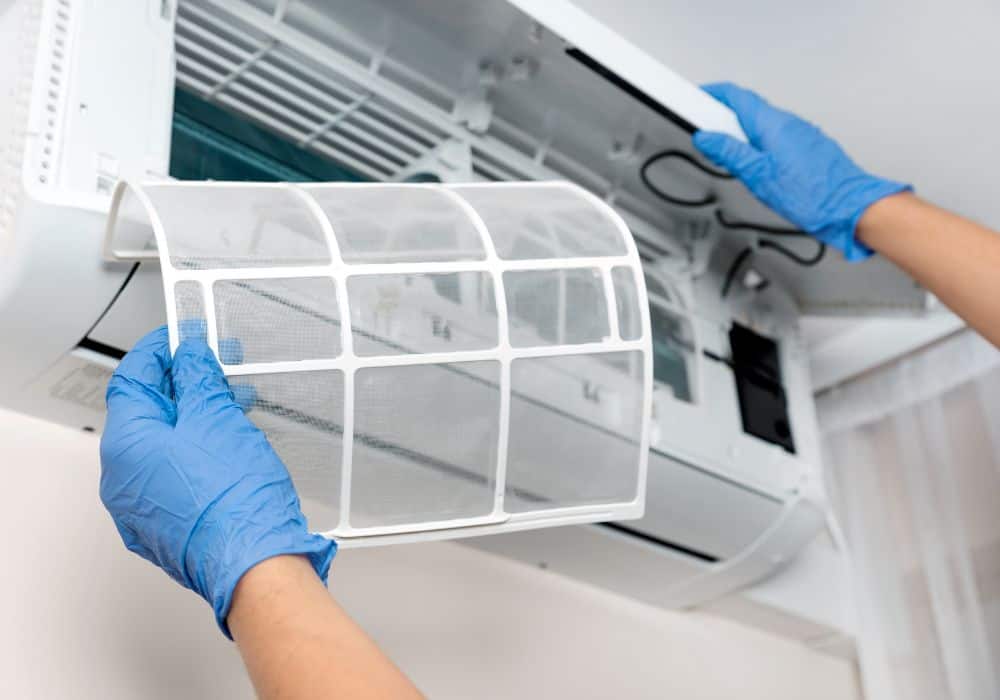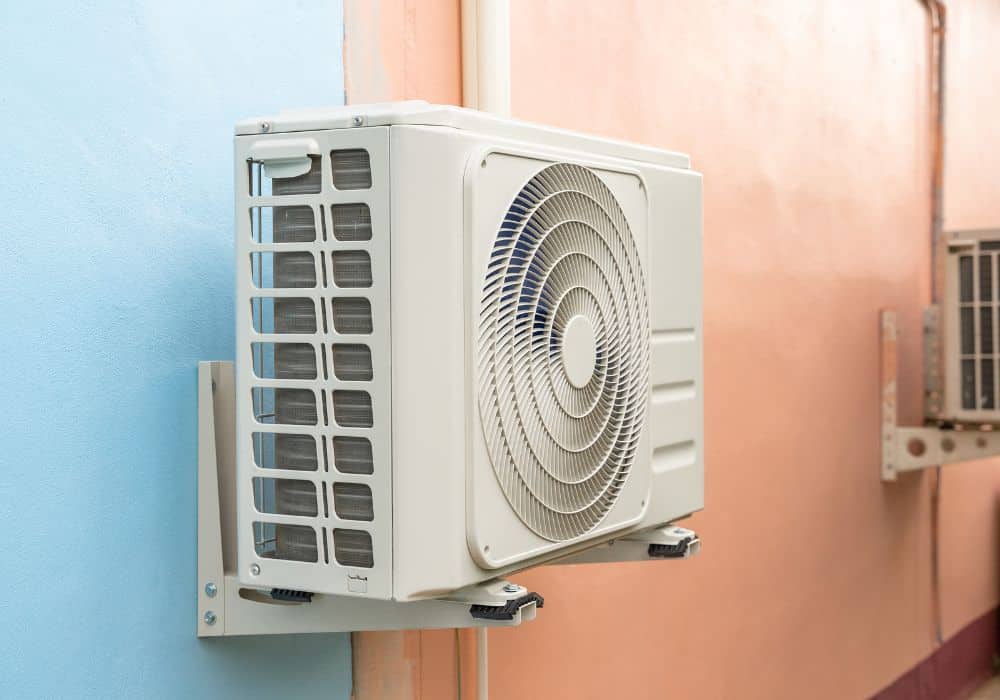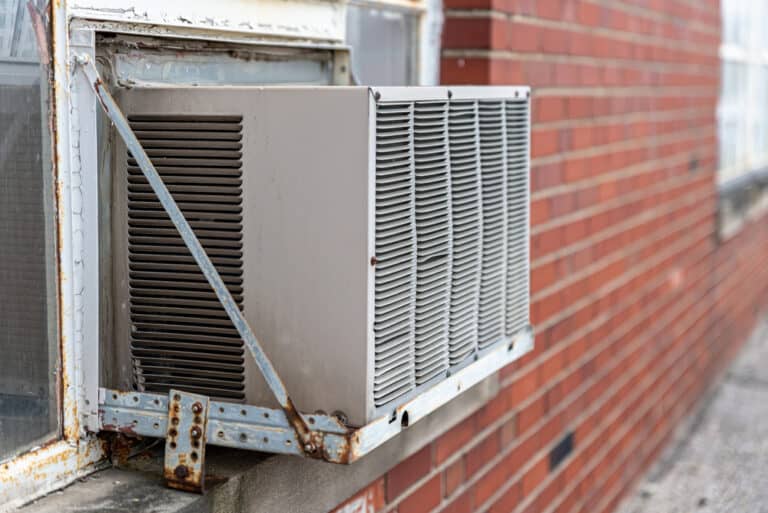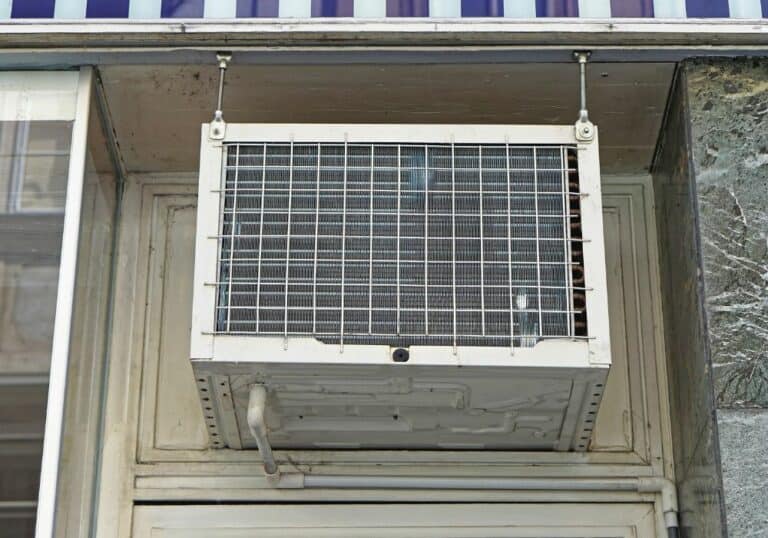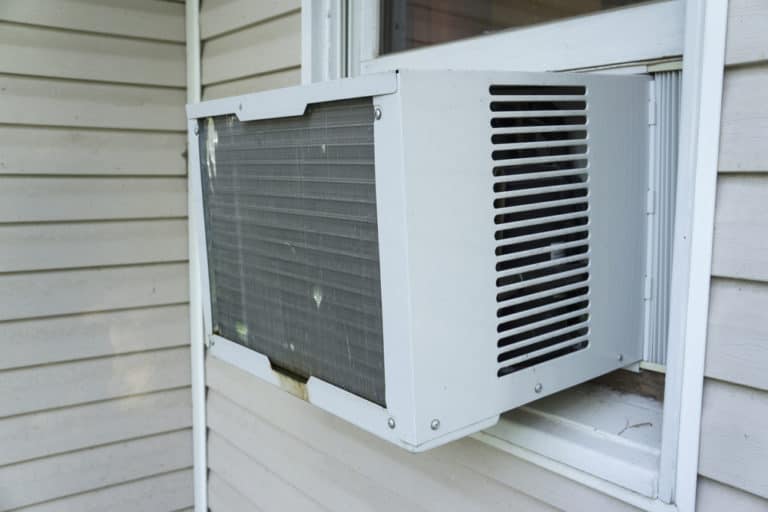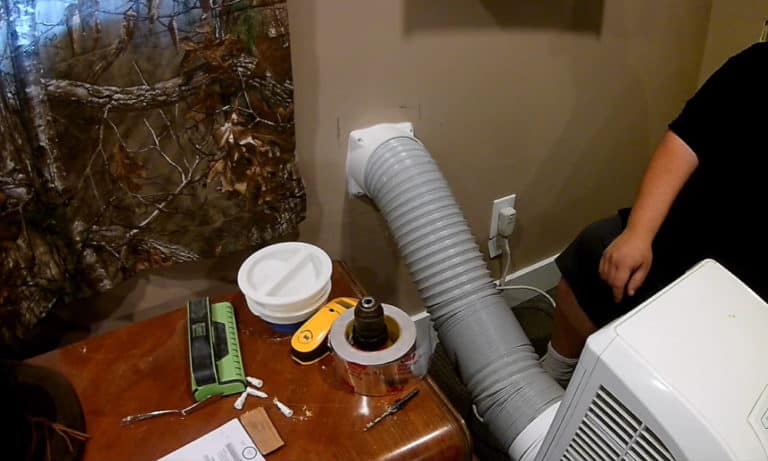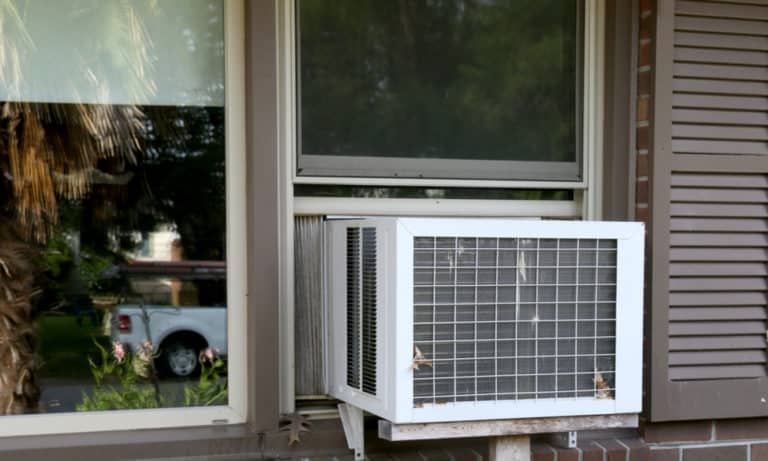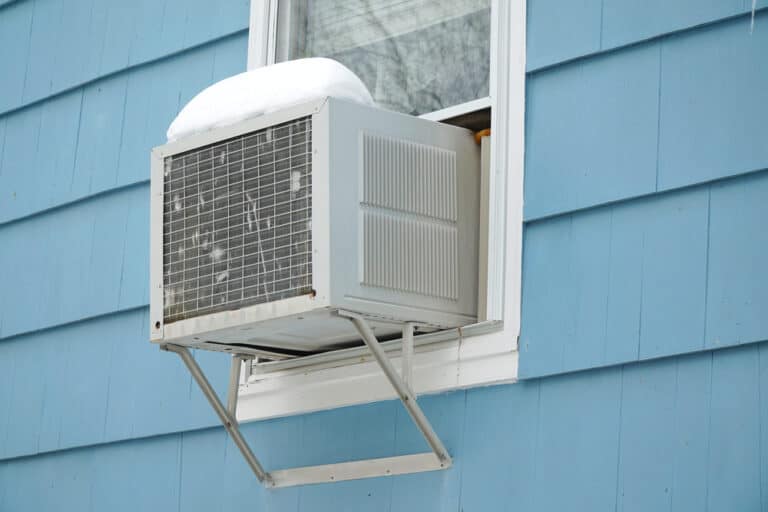An air conditioning unit is a lifeline on warm, humid days, keeping our homes fresh, breezy, and cool. Normally, these units work quietly in the background, often going unnoticed.
So when your AC unit begins to hum, buzz or rattle, it can be an alarming sound. Is your AC broken? Is it damaged? And why is it not turning on fully?
This article will explore six of the most common causes of your AC unit making unusual sounds and failing to turn on.
We’ll highlight simple ways to diagnose the problems and suggest if the time is right to do the job yourself – or hire a professional!
Six potential causes of your air conditioner unit humming
1. Fan motor problems
A faulty compressor fan motor is one of the most common reasons your AC unit fails to turn on and produces an irritating humming noise. The indoor blower might be working correctly, but because the fan fails to turn, it will create a distinct humming sound.
Unfortunately, a fan motor can stop working for several reasons, including debris like leaves and twigs blocking fan blades, parts of the motor that have become loose, structural damage, and overgrowth like moss blocking the unit.
In the above video, the YouTube channel Word of Advice TV shows how straightforward diagnosing and replacing the fan motor can be.
2. Circuit breaker problems
Another common reason why your AC unit is creating a rattling noise but failing to turn on is a circuit breaker problem. There are three main reasons your AC unit could be tripping your circuit: overloading, short circuits, or a ground fault surge.
Overloading is the most common culprit and happens when there is too great an electrical demand put on the circuit than it can handle. Your unit may overheat and produce a loud humming noise.
If your circuit continues to trip when your AC unit is turned on, you will need to redistribute any devices or appliances on the same circuit.
Short circuits are a much more dangerous problem and usually produce a burning smell alongside the humming noise. These happen because of an electrical wire fault, i.e., when the live wire of your AC unit comes in direct contact with a neutral wire.
Ground fault surges are similar to short circuits in that they result from wires touching each other. The live wire of the AC unit is touching a bare ground wire and causing too much electricity to flow into the AC unit.
3. Your AC unit has frozen over
If your AC unit freezes, it can produce a humming noise and fail to turn on. Check your nearby drain pipe or window ledge for signs of condensation; even tiny droplets can indicate there’s a freezing problem in your AC.
Unfortunately, there are several causes for your AC unit to freeze over. The first and most common is when the refrigerant leaks inside, which clogs up the system and prevents the blower motor from functioning correctly.
Turn off your unit and examine the internal system. You can repair minor leaks with sealant or tape, but if the leak is extensive, you may need a professional repairer.
Another cause for your unit to freeze is a clogged air filter. Any clog in your system may prevent the blower motor from working properly, preventing the blower motor and condenser fan motor from functioning correctly. This can prevent warm air from reaching the condenser, allowing it to be filled with ice slowly. Cleaning or replacing the filter with a new part can remedy the situation.
4. Loose components
Many AC units have numerous small parts that are constantly in motion. At some point, they can loosen or disconnect or may have been installed incorrectly in the first place. This causes intense vibrations when the unit is powered on and creates a loud banging noise from your unit.
This eventually can lead to the unit failing to power on entirely, as loose parts interfere with the inner mechanisms. Only by turning off your AC unit and examining the internal system can you see if there are screws, loose parts, or a piece of equipment that has become worn down.
Repairing, replacing, or tightening the parts in question can solve your issue, though be careful not to apply too much pressure – you risk breaking the components completely!
5. Vale break or leakage
The thermostatic expansion valve is an essential part of your AC unit, controlling the amount of refrigerant liquid released into your system.
If it becomes loose, broken, or misplaced, it can create a loud hissing sound from the system. Not only that but there will be massive fluctuations in air temperature from the unit, which can lead to some high energy bills. Not only that, but a malfunctioning value can also prevent the AC unit from turning on at all.
Unfortunately, an expansion valve replacement is one of the most costly repairs to an AC unit, averaging between $450 to $700, depending on your make and model. Additionally, it is a complex task reserved for a professional technician, so you should not attempt this repair work alone.
6. Faulty capacitor
After the thermostat clicks on, the capacitor starts your entire AC unit and jolts it electrically to spring motors into action. As such, a poor-performing capacitor can be one of the main reasons your AC unit is not turning on.
Failing to turn on while creating a loud buzzing noise is a common complaint of a poorly performing capacitor. Other signs include rising energy bills because the AC unit takes much longer to work. Another sign is an inability to blow out cold air.
Causes of a bad capacitor range from wear and tear over time to overheating, power surges, and short-circuiting. Unfortunately, like the expansion valve, replacing the capacitor of an AC unit requires in-depth knowledge of the system to complete.
A well-cared-for AC capacitor can easily last up to 20 years. Regular servicing of your system is advised to diagnose problems with your capacitor early, ensuring it remains in a tip-top state and does not require a replacement.
Why you must fix an AC unit immediately
As well as being costly to replace, a faulty AC unit can pose serious health risks to you and your family, especially if the cause is a refrigerant leak.
Symptoms may include difficulty breathing, headaches, nausea, and vomiting, as well as eye and skin irritation and developing an irregular heartbeat.
If you suggest your AC unit is malfunctioning for these reasons alone, turn it off completely and disconnect it. You should contact both your doctor and a repairer as soon as possible.
Expert Tips to remember:
- Circuit breaker problems often come with other noticeable issues, including discoloration around the AC unit, regular tripping of power, as well as a burning smell. They demand immediate attention to fix.
- If the temperature fluctuates wildly when the AC unit turns on, this indicates a problem with your thermostatic expansion valve.
- Be careful replacing or installing electrical components to your AC unit – these can cause further problems to the system.
- You should have your AC unit regularly serviced by a professional repairman to prevent wear and tear.
- Be mindful of the symptoms of refrigerant poisoning, including nausea, vomiting, and skin and eye irritation. Turn off and disconnect your unit immediately and contact your doctor.
Conclusion
Your AC unit is easily one of your home’s most important, expensive systems. Responsible for keeping us cool, a great AC unit should work quietly in the background, even on the most humid of days.
So when you hear a loud buzz from your unit, you should be cautious. As our article has shown, there are many reasons why this noise is happening, which demand your immediate attention.
Examine your AC unit closely to see where precisely the problem lies. Discoloration and tripping, for example, are tell-tale signs of an overloading problem, while signs of condensation suggest there’s a problem with your refrigerant pipes.
It is recommended that you hire a professional maintenance specialist to examine and fix your AC unit, as they require a high level of skill and understanding. You may permanently damage your entire system if you attempt this job independently.
If you have any questions or suggestions about why an AC unit may hum and not turn on, please leave a comment below.
If in doubt, remember:
- Always turn off and disconnect your AC unit before examining it.
- Examine recent energy bills – power use fluctuations can signal that your AC unit is underperforming or overperforming.
- Regularly have your AC unit serviced yearly to keep its parts in good working order.

